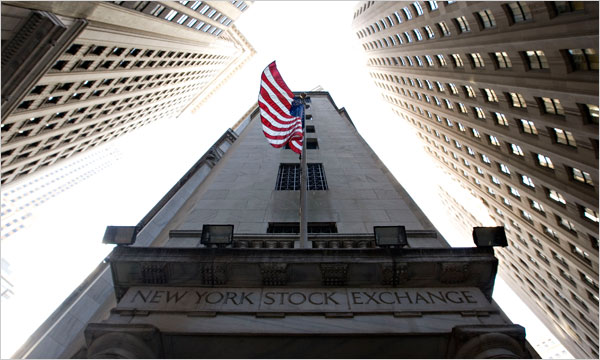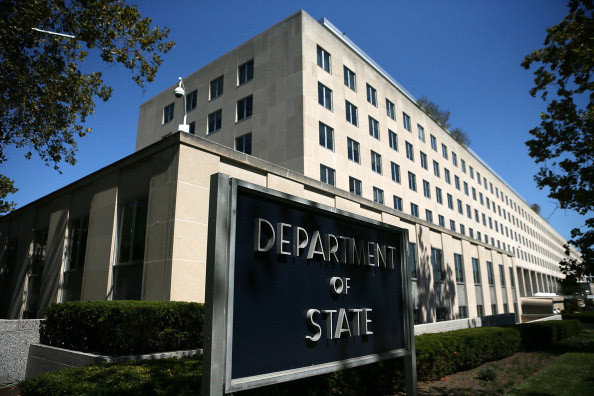Even after the crash of 2008/09, ‘too big to fail’ institutions like Goldman Sachs have major interests in businesses unrelated to banking. Wall Street’s brand of financial capitalism has crept into the ‘real’ economy that employs the majority of North Americans, and it has become a dangerous trend. Curbing the spread of finance into all sectors the economy is a necessary and challenging endeavour that first requires weakening the financial lobby in Washington.
The Curious Case of Commodities
Today, investment banks in the US can have holdings in physical commodities. The New York Times recently reported on the case of Goldman Sach’s aluminum holdings, where the bank’s subsidiary purchased a massive aluminum warehouse and runs a highly inefficient operation, driving up the price of aluminum by restricting supply. The bars of the metal used in, among other things, soda cans, are repeatedly shuffled between warehouses, meaning their clients paying to store the aluminum receive an inflated price while Goldman’s subsidiary makes more storage fees.
[captionpix align=”right” theme=”elegant” width=”300″ imgsrc=”http://www.washingtonpost.com/blogs/wonkblog/files/2013/07/Screen-Shot-2013-07-22-at-2.36.00-PM.png” captiontext=”The premiums charged for storage are passed on to buyers, increasing the ‘logistical’ price of Aluminum “]
The Times also points out how in 2010, JP Morgan purchased USD 1.5 billion worth of copper, over half the available warehouse supply, sparking a hike in prices. Last year, in partnership with Goldman and BlackRock, JP Morgan successfully lobbied to back new funds using massive stockpiles of copper. Manufacturers and copper market wholesalers warned such a development would put pressure on industries that use the metal. JP Morgan has since announced its plans to “explore strategic alternatives”.
The myopia of finance institutions leads them to pursue profit margins from any investment without consideration for the effects on the ‘real’ economy. These investments funnel profits to financial institutions and away from the consumers and the industries employing the majority of North Americans, hampering their ability to invest in job creation or innovation.
The pursuit of long-term balance sheet gains was admirable in traditional finance, where lending and investment were primarily concerned with providing capital to businesses in need. An unwillingness to invest in companies likely to fail was the incentive for banks to be judicious and prudent with their funds. But the brand of financial capitalism practiced by the big banks of today is obsessed with short-term gains in dollars earned right-here-right-now, which means higher prices for consumers.
In the case of aluminum, Goldman’s subsidiary’s business strategy causes the global price of aluminum to rise, making it more expensive for consumers to buy soft drinks, cars and other goods. The premium paid by consumers ends up in the hands of Goldman, who use it for another speculative investment. While a poor business model, it would not be as great a threat to the wider economy if finance confined itself the financial world. Yet that is not the case, today big banks have their tentacles in all sorts of industries, creating a systemic risk. By having holdings in so many sectors, investment banks become‘too diversified to fail’.
US regulators are reportedly considering an investigation into this practice, but there’s no evidence to suggest what Goldman or JP Morgan do is technically illegal. This is because they benefit from a wave of deregulation in the 1990s under the Clinton administration that allowed them to expand beyond their traditional role of recycling capital from savers and investors to borrowers and businesses.
Lobbying Makes the World Go ‘Round
Deregulation has been sustained in the wake of the financial crisis by the intense lobbying efforts of the financial industry. Financial lobbyists flooded the American government in the years following the financial crisis, spending close to $100 million influencing policy-makers in 2008 and 2009, while jumping to a high of $104 million in 2010. This year they have already spent $24 million. Despite White House rhetoric, banks still influence the policy agenda in Washington, even drafting bills that pass Congress with little difficulty.
While some steps have been taken, like the recent push by John McCain (R-Arizona) and Elizabeth Warren (D- Massachusetts) to re-instate the Glass-Steagall Act , the key to closing this Pandora’s box is curbing the power of financial industry lobbyists to shape regulation and legislation as it passes through Congress. Among the measures that could be pushed for are: limits on the amount banks can spend lobbying, bans on lobbying particularly influential members of Congress that chair committees or hold positions of trust, and mandating officials to disclose from whom they received assistance drafting a bill.
Organizations like Public Citizen in Washington are already pushing for this kind of reform. Overseas, Corporate Europe Observatory and Finance Watch in Brussels are also pushing for changes to lobbying and financial regulation. In Canada Democracy Watch is leading the charge to weaken the influence of wealthy interest groups on public policy.
Although it is an uphill battle, breaking the hold of the financial lobby is necessary fight. It will require broad political support from conservatives and liberals. The good news is, both free-market and social democrat adherents may find it easy to establish common ground on this topic. McCain and Warren, from opposing parties in a divided Washington, have already done so.
Putting Banks in Their (Proper) Place
The wave of deregulation that swept through Western countries in the 1990s allowed reckless financiering and the unjustified expansion of banks into the ‘real’ economy. Using their lobbying clout, financial institutions have managed to maintain their interests in industries unrelated to banking. Their business practices, which led to the largest recession since the Great Depression, are practiced in sectors that directly impact consumers in their everyday lives. Curbing the power of banks to influence government officials is a challenging, but promising, way to prevent this dangerous business model from extending into all parts of our economy. If it is unsuccessful, consumers and their employers will continue to pay for Wall Street’s inflated profit margins.




